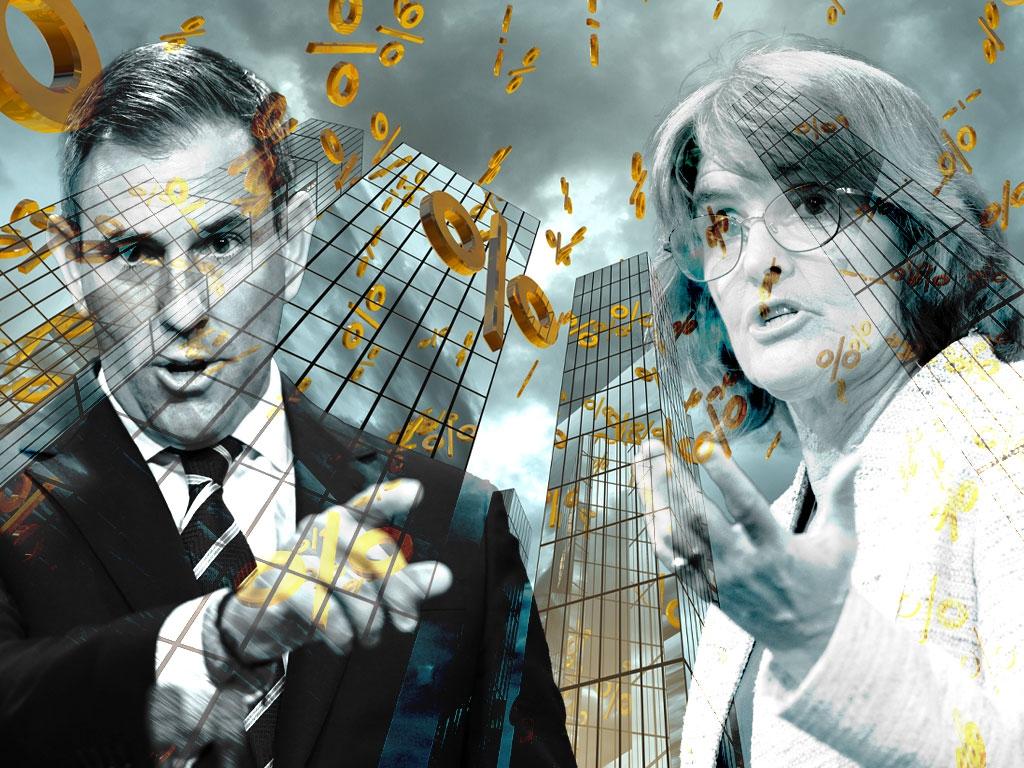Voters don’t share Jim Chalmers’ optimism about living standards


It’s not that the Treasurer is fibbing, or doing anything at odds with the DNA of any political professional with the end of a gruelling parliamentary term in sight.
But Chalmers is running hard on an optimism voters just don’t share, amid incessant bill shock, insipid economic growth, record population growth and what most now regard as a national “housing crisis”.
Just like the Democrats loaded up in America, there’s a bulky kit bag of great metrics that justify Australia being right up there on the podium – uninterrupted growth, record workforce participation, a frothy stock market, Canberra’s prudent debt reduction and a bumper tax take.
Yet when the Treasurer touts a million new jobs added so far in this term – more than 1000 a day – many workers tend to shrug because the jobless rate has been consistently low post-Covid and pay rises have barely kept pace with inflation.
Since the start of the pandemic, consumer prices have increased by 19 per cent, while wages have increased by 13 per cent. During Labor’s term, price growth has outstripped wages – 10 per cent to 8 per cent.
Tax cuts? Saved for a rainy day or paying off the mortgage.
Two budget surpluses in a row? Take a bow in front of the other PhDs at the Academy of Sciences.
Chalmers hasn’t been lazy on regulatory and institutional reform but those small improvements to how we do business in this country have been obliterated by Labor’s signature interventions – from social spending to off-budget funds, industry policy to workplace re-regulation.
Donald Trump’s pregnant line to the MAGA faithful at his New York pre-election rally last month asking “Are you better off now than you were four years ago?” will be repurposed here by the Coalition all the way to polling day.
New research from JWS Research, completed after the US election, shows the warning lights are flashing for perceptions about the Albanese government’s economic management.
Since August, judgments about Labor’s performance on addressing cost-of-living issues, with housing affordability and supply an area of rising concern, have deteriorated.
On the more complex and multidimensional experience of voters’ living standards, the latest JWS True Issues survey finds Australians feel as if they are falling behind: 43 per cent say they are worse off now than two years ago, while only 19 per cent say they are better off.
About one-third (36 per cent) see their living standards as about the same today as in late 2022, when inflation peaked at 7.8 per cent.
In May that year the Reserve Bank first raised its cash rate from the crisis era’s floor of 0.1 per cent and over the next 18 months did so another dozen times to its current 4.35 per cent, where it has been for over a year.
Beyond growing cost-of-living frustrations, the JWS polling shows a huge majority of voters (78 per cent) believe we are in a housing crisis, with migration-based population growth also behind decaying views about living standards today compared to two years ago. The economy continues to grow, just, but the RBA is still worried that the strength of the labour market and strong public spending levels could keep pressure on inflation.
The sting in the post-pandemic employment miracle is that a rate cut isn’t likely until early next year, perhaps even as late as mid-year, beyond the date a federal election is due.
That our rates are not as high as in nations that have begun monetary easing is little comfort for home borrowers or for a government proud of its record.
The electoral clock is running out for Labor as it seeks to raise the festive spirits of a nation menaced by big inflation, which is in the doldrums about its living standards, and losing confidence in the game plan.






Most Australians don’t feel as if they’re living in the same get-ahead nation that Jim Chalmers described in his ministerial statement on the economy.